Archives: Documents
-
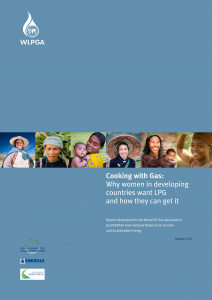
Cooking with Gas: Why women in developing countries want LPG and how they can get it
ENERGIA developed a report for the World LP Gas Association, investigating the need for access to clean cooking energy for women and girls. The World Energy Outlook estimates that almost 1.3 billion people living mostly in developing Asia or Sub-Saharan Africa and in rural areas are without access to electricity. Reports estimate that another 2.6…
-
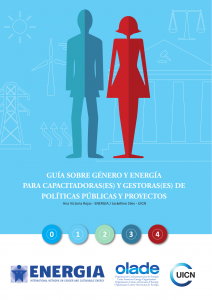
Guía Sobre Género y Energía Para Capacitadoras(es) y Gestoras(es) de Políticas Públicas y Proyectos
La guía es una compilación de materiales y documentos previamente producidos por otras fuentes, que recoge la experiencia de las organizaciones vinculadas con las redes de género y energía de Nicaragua, Honduras, El Salvador, Guatemala, la plataforma virtual de Género y Energía de OLADE, algunas instancias gubernamentales del sector energético de Nicaragua y Uruguay, la…
-
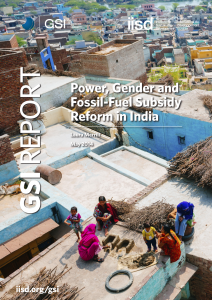
Power, Gender and Fossil – Fuel Subsidy Reform in India
-
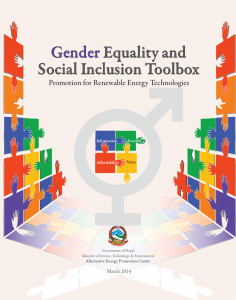
Gender Equality and Social Inclusion Toolbox – Promotion for Renewable Energy Technologies
The concept of Gender Equality and Social Inclusion (GESI) is the new for the AEPC/NRREP and related stakeholders working for it. Unless the professional working in renewable energy sector has clear understanding on GESI, the target set by the program would not be materialised. The professional working at community level, district to center level must…
-

Training Manual – Gender, productive uses of electricity and business development skills
The Ministry of Land, Mines and Energy (MLME) of Liberia, in collaboration with the Norwegian Water Resources Directory (NVE) and the International Gender and Energy Network (ENERGIA) has developed this manual to promote gender equality and the empowerment of women in electrification programmes, and to facilitate the training of women so that they can participate…
-
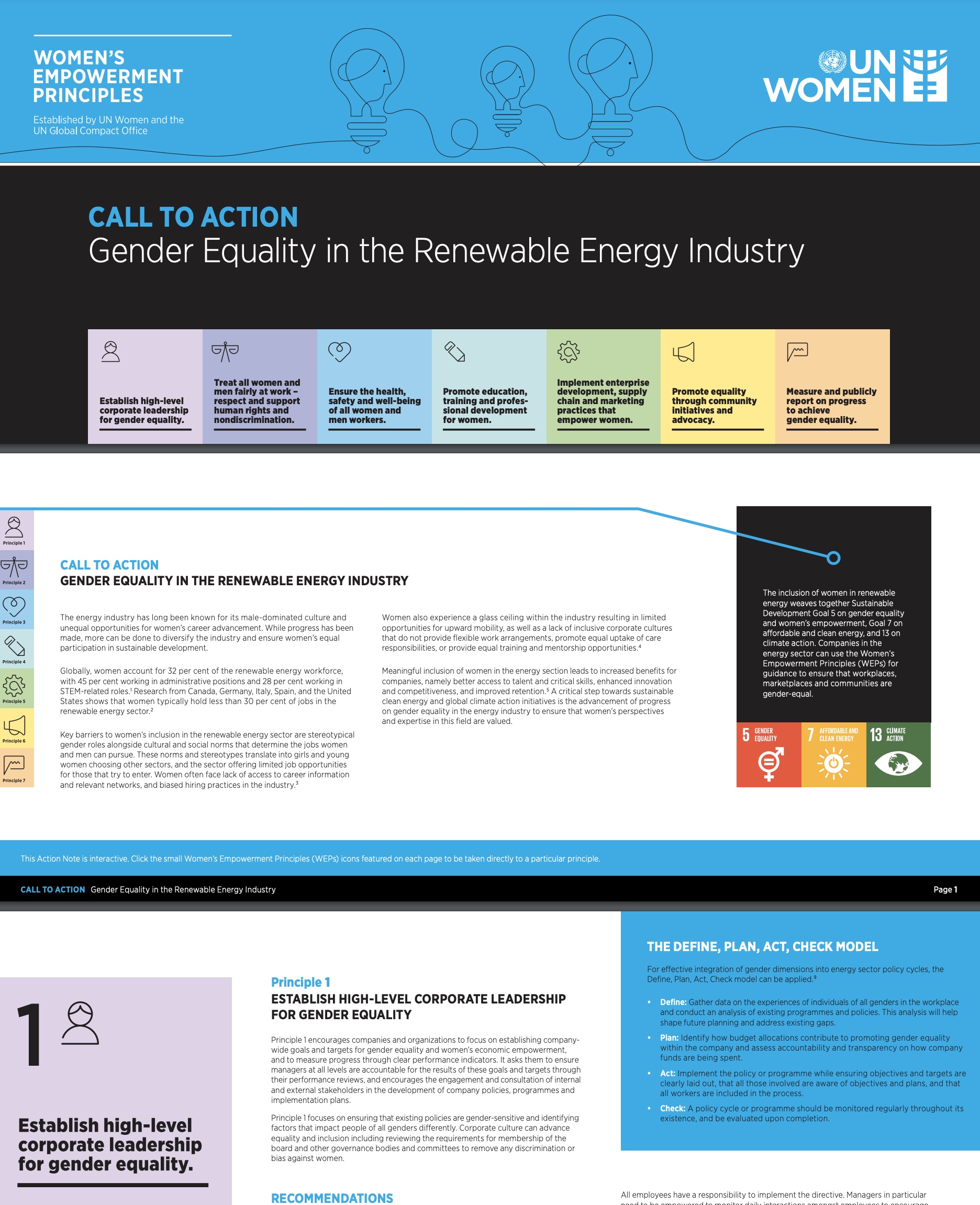
Call to Action: Gender Equality in the Renewable Energy Industry
The energy industry has long been known for its male-dominated culture and unequal opportunities for women’s career advancement. While progress has been made, more can be done to diversify the industry and ensure women’s equal participation in sustainable development. Globally, women account for 32 per cent of the renewable energy workforce, with 45 per cent…
-
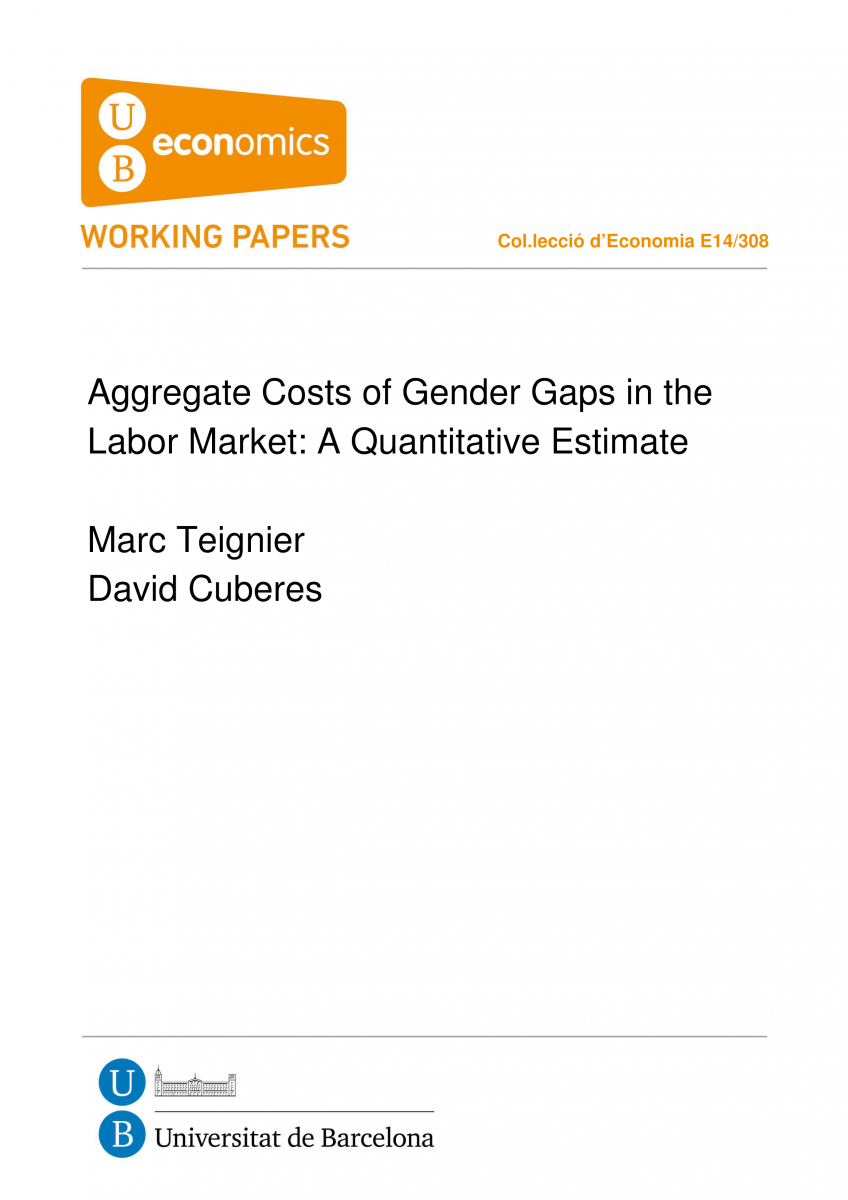
Aggregate Costs of Gender Gaps in the Labor Market: A Quantitative Estimate
This paper examines the quantitative effects of gender gaps in entrepreneurship and labor force participation on aggregate productivity and income per capita. We simulate an occupational choice model with heterogeneous agents in entrepreneurial ability, where agents choose to be workers, self-employed or employers. The model assumes that men and women have the same talent distribution,…
-
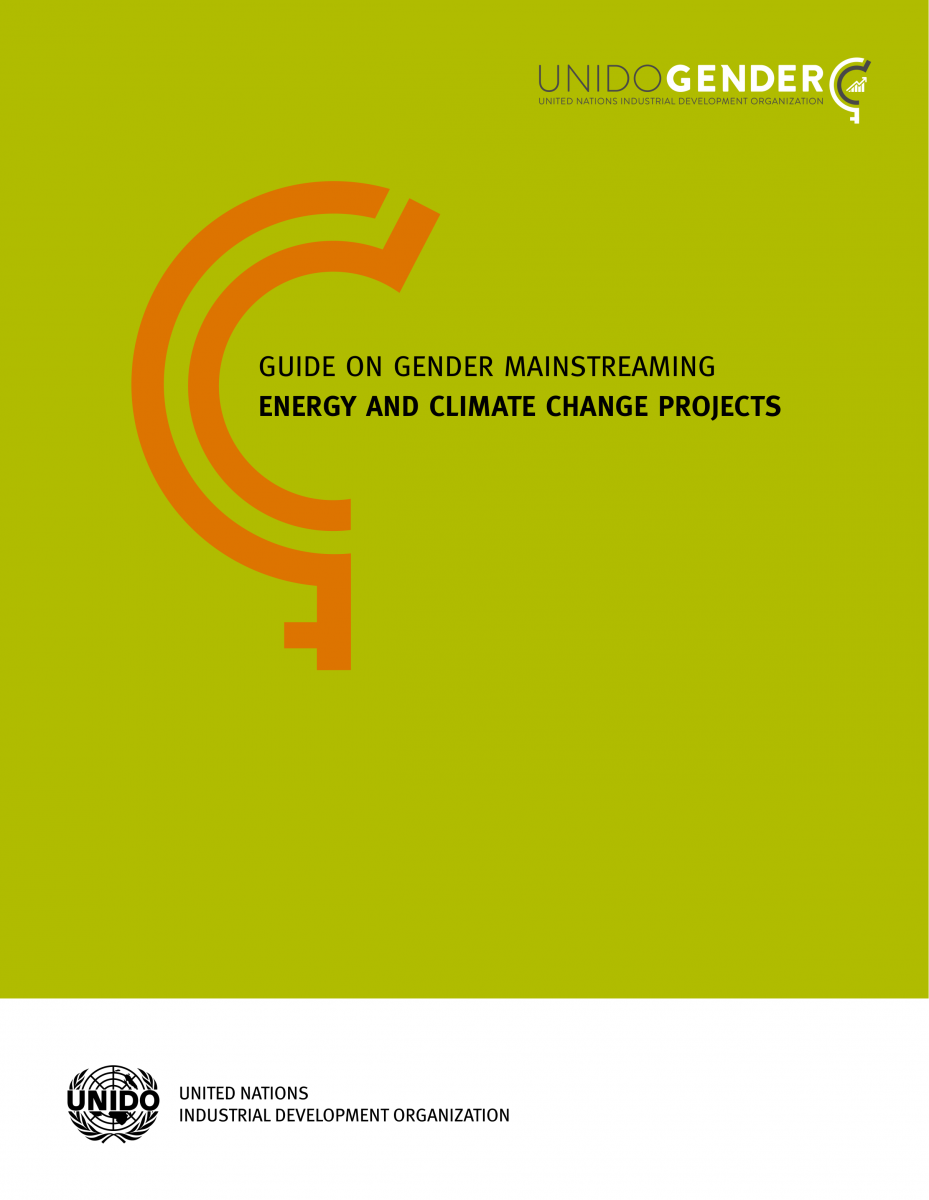
Guide on Gender Mainstreaming in Energy and Climate Change Projects
This Guide aims at “demystifying” gender mainstreaming and providing practical guidance on how to systematically address gender inequalities specifc toUNIDO’s energy and climate change interventions. Gender equality is a goal in its own right, but it is also vital to the achievement of other development goals, such as poverty reduction and environmental sustainability. To ensure…
-
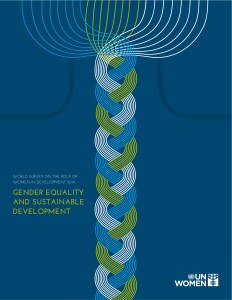
Gender equality and sustainable development – 2014 World Survey on the Role of Women in Development
The immense social, economic and environmental consequences of climate change and loss of essential ecosystems are becoming clear. Their effects are already being felt in floods, droughts, and devastated landscapesand livelihoods. Among those most affected are the women and girls, given the precariousness of their livelihoods, the burden of securing shelter, food, water and fuel…
-
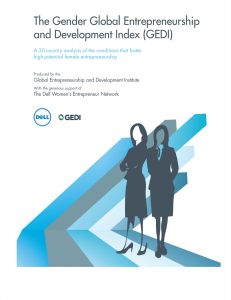
The Gender Global Entrepreneurship and Development Index
-
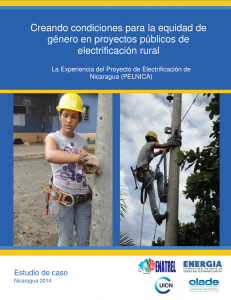
Creando condiciones para la equidad de género en proyectos públicos de electrificación rural La Experiencia del Proyecto de Electrificación de Nicaragua (PELNICA)
This study examines the benefits that can be derived through gender mainstreaming in sustainable energy projects, specifically looking at the case for PURE in Nicaragua. Attention is given to activities that boost women’s participation in decision making and non-traditional roles.
-
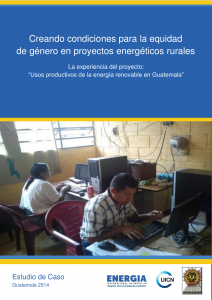
Creando Condiciones para la Equidad de Género en proyectos Energéticos Rurales Estudio de Caso Guatemala 2014 La experiencia del proyecto: Usos Productivos de la Energía Renovable en Guatemala
This study examines the benefits that can be derived through gender mainstreaming in sustainable energy projects, specifically looking at the case for PURE in Guatemala. Attention is given to activities that boost women’s participation in decision making and non-traditional roles.

